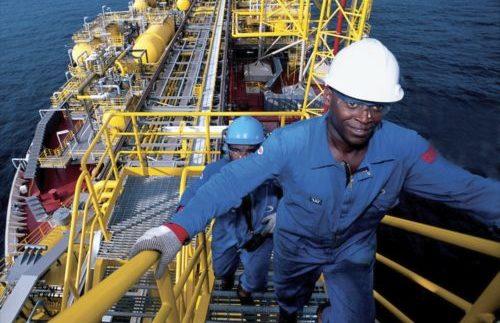
Africa-Press – Sierra-Leone. Despite being blessed with abundant oil and gas resources, Africa’s production has been on the decline, representing a challenge for the continent as moves to initiate a COVID-19 economic recovery and address energy poverty.
With exploration restricted due to reduced capital for fossil fuel projects and the transition away from hydrocarbons, the continent needs to act now if it is to reap the benefits of its oil and gas.
In an exclusive interview with the African Energy Chamber (AEC), Kola Karim, CEO and Managing Director of Shoreline Energy International and AEC Advisory Board Member provides more clarity on the current situation:
What will this production underperformance in Nigeria and other African countries mean for the continent as a whole?
KK: Underperformance will have a direct effect on the ability of countries to fund budgetary spending. There has been a direct linkage for many years between the oil price and the ability to many African governments to balance the books. The massive slow down with have seen due to covid and the significant economic shocks it has produced coupled with production below capacity will certainly create fiscal pressure.
We have seen the oil price rise in the last few quarters to a healthy level, however without the production to take advantage of higher prices, expect to see the usual challenges in funding capital spending. Deficit spending will also therefore depend on the view of the markets on how much damage and for how long countries
What do you feel are the primary reasons influencing production decline in Africa?KK: I don’t think we can take a cookie cutter approach to identifying where the problems lie. For instance, our production challenges on onshore Nigeria are very different to challenges in other countries that may be more constrained by limited investment in infrastructure or more straightforward operational bottlenecks.
Beyond these more systemic challenges m I think also that covid has had a significant impact which has still to be worked out of the supply chain and we will continue to see the effect of this through 2022.
We would typically expect a natural 4-5% decline in production in the industry. However, Covid has seen those rates double to 10% over the last couple of years. The massive disruptions in global supply chains have also meant that equipment and maintenance activities such as part replacement has been severely disrupted across the industry leading to significant production delays and production shut ins in the worst cases.
What can be done to turn this around?
KK: We are facing some quite significant headwinds. The Systemic and Covid related challenges I alluded to earlier are significantly complicated by the additional variable of de-carbonisation which continues to create a potential financing gap for both local producers and IOC’s looking to invest in new production.
Banks are retreating from lending to Oil and Gas projects, and this creates an uphill task with regard to the key cornerstone of any turnaround which is financing.
We need to see additional financing to fix supply chains and allow manufacturing and maintenance inputs to be located nearer to production facilities on the continent and we need more investment in opening up additional reserves to close the production gap as consumption returns.
For More News And Analysis About Sierra-Leone Follow Africa-Press





